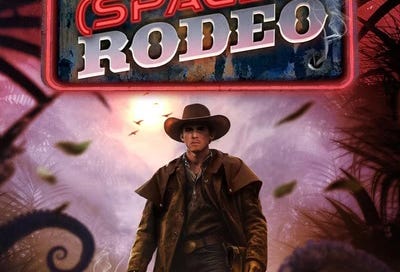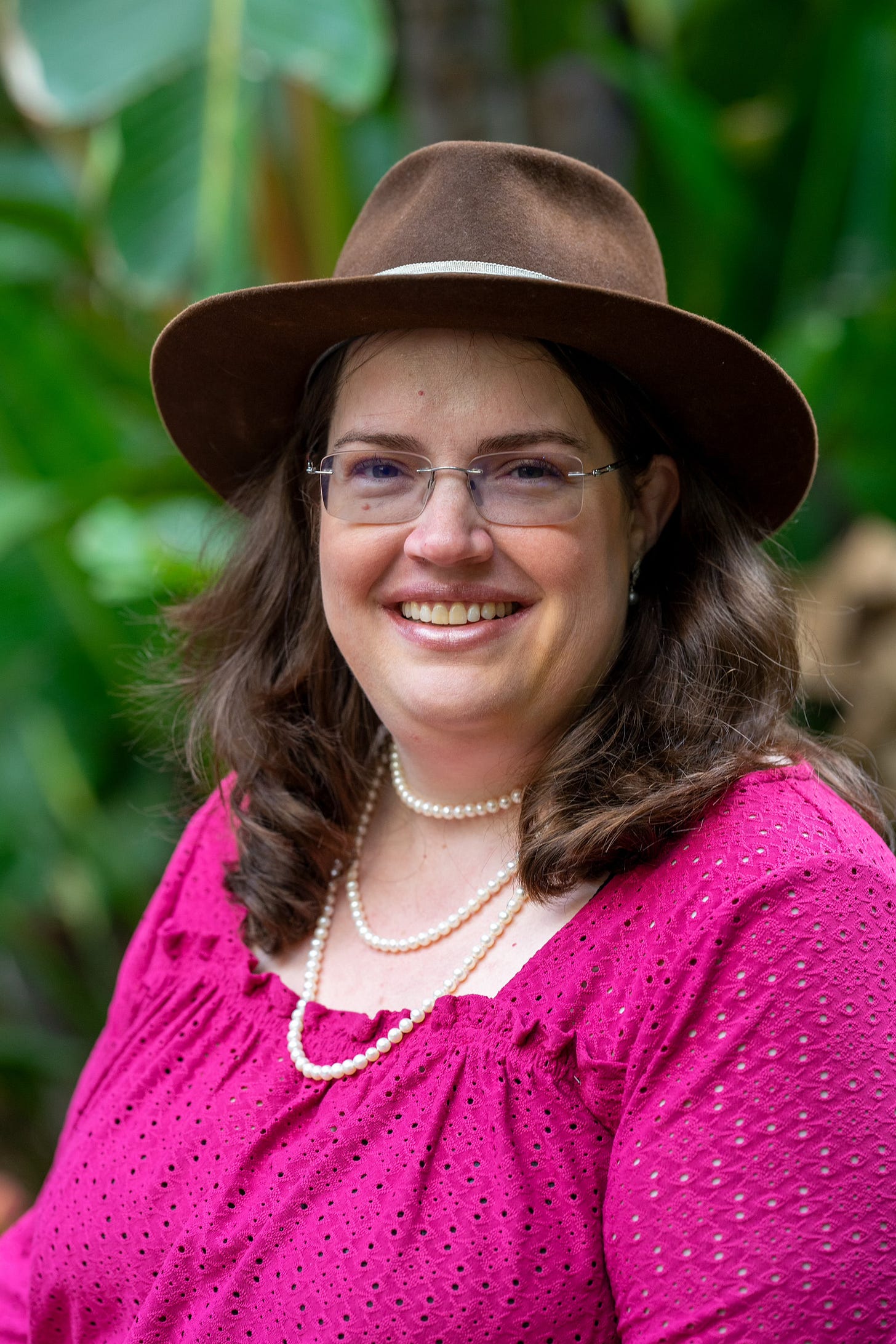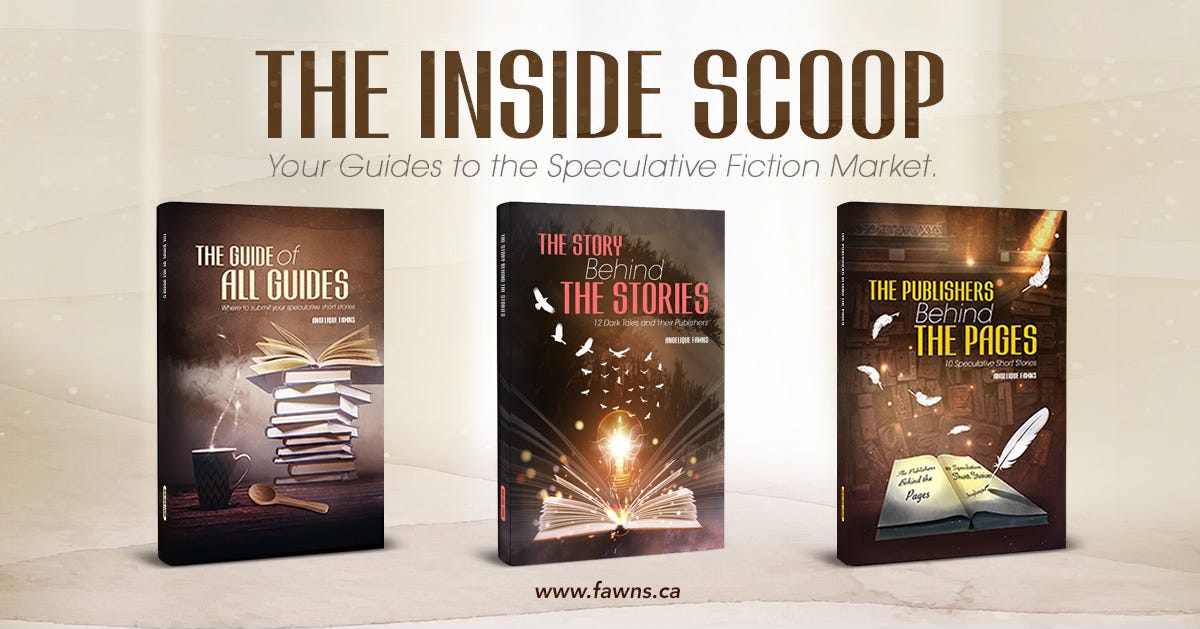Transcribing Novels with Kate Julicher
An interview on how to master the art of "talking" your book.
Writing a novel… by talking!
If you have been following my personal writing journey, I’m trying to learn the skill of dictating my prose. To this end, I am going to be interviewing several successful authors who have mastered this talent! Can you imagine being a writer without the back-breaking hours tied to a computer?
Let’s chat with this lovely author from the Superstars Tribe. (Heads up, this is the first in a series of interviews about transcription. Stay tuned for more advice from Martin Shoemaker and Kevin J. Anderson!)
K.D. Julicher has published multiple short stories and won Writers of the Future and the Baen Fantasy Adventure Award. As M. Talon, she’s the author of the Not My First (Space) Rodeo, available in ebook/audio/paper from Podium, and several other web serials on RoyalRoad, currently working on one called “License to Cultivate”.
AF: Tell us about your writing career and author pseudonym M. Talon.
KJ: Hi! I’ve been writing seriously for over ten years now, with some minor successes (Writers of the Future win, short story publications) under my K.D. Julicher penname. I started using the M. Talon penname about a year and a half ago when I switched genres to LitRPG/progression and dictation. I’m a software engineer by day as well as a mom of four – so I am a very busy person for sure! That’s why I had to switch to dictation. Now my hours spent waiting at Taekwondo or for Walmart pickup are writing time!
AF: Why Space Opera, and how are you connected to the Lit RPG world? (which is something I know nothing about.)
So LitRPG is a fun, hot, newish genre that’s blown up in the last few years, along with somewhat related genres like Progression Fantasy. Basically, think of your favorite videogame or roleplaying game session. Turn that into a book – and keep the numbers!
LitRPG loves numbers and abilities with specifics. There have been a few breakout hits in the genre, notably Dungeon Crawler Carl, and it’s so fun to write for.
I had been writing epic fantasy for a number of years and honestly was getting burnt out. Don’t get me wrong, I love it, but it is so hard to break in with epic fantasy right now, and setback after setback was getting me down. LitRPG has a passionate, hungry fanbase that doesn’t demand you finish your entire 12-book series before picking up book one. Also, having been a gamer myself for decades, I love bringing that side of me to bear on my fiction.
AF: Of all the tools in your writing toolbox, what do you find most useful?
KJ: Can my answer be “my husband”? He’s my co-writer/brainstorming partner/editor/first reader, and we actually both publish under the M.Talon penname.
But for a serious answer, for the last 18 months, it’s been dictation.
Not only does dictation let me reclaim “wasted” hours spent driving or waiting in pickup lines or for kids to finish their extracurriculars, it also lets me write while on nice long walks and has been amazing for my mental health. No getting distracted and checking social media when you’re halfway up a mountain!
AF: Do you have any advice for writers hoping to learn this technique?
KJ: First and biggest tip: do not just start dictating the next chapter of your work in progress. That’s going to be a super steep learning curve. Start by dictating, oh, character bios or plot notes. Some writers I know started by dictating their monthly newsletters. I went kind of overboard, and my first dictation project was a brand new series in a brand new genre (litRPG) with a brand new pen name!
Second: give yourself grace. Remember though that sitting at a keyboard and typing is a weird and anomalous way of telling stories, compared to the literal millennia of sitting around a fire and speaking the stories aloud. You’re reclaiming a storytelling tradition as old as human history!
Third: invest in decent tools. You can start out using your phone to be sure you like it, but that’s going to quickly get frustrating. A good cardiode headset mic (Mine is a Sennsheimer) and a USB recorder (Olympus WS-883 is the starter model I recommend) will run you less than $200 and you’ll be able to record in the car, or with moderate amounts of background noise.
Transcription software – if you have a Mac, get MacWhisper. Cheap, fast, good. Hard to believe, but true! It’s harder if you’re a PC user. Dragon is the big name in the game but they’re hideously expensive. You can get your own Whisper implementation set up on your machine if you’re a geek or have one on call, but I’m pretty sure AI will be able to handle things for you before too long.
AF: What is your writing process/routine?
KJ: First, I check my outline or notes to see what the day’s chapter(s) are supposed to cover and make sure I have that in my head. If I’m going on a long walk or drive I may print out bullet points. Then, I grab my headset and recorder and head out the door – for a nice long hike past wild horses if I’m lucky, or an hours-long errands session if I’m not.
Then I just start talking. If I know what I’m writing and don’t have to stop, I can get 5000 words in an hour, no sweat.
My best day of dictation I got 25,000 words written. I also hiked 7 miles and climbed a local prominence that had been on my bucket list, went shopping, and sat in a park watching ducks paddle on the lake, all while writing.
One tip: If you realize you make a mistake, use a keyword you’ll see in editing to flag that you need to fix something, a phrase you don’t use elsewhere, like “break break break”. Makes finding the troublesome spot much easier.
AF: What software/hardware do you use for dictation, and how much work is it to bring it to the final product?
KJ: Once I’m done and back at my computer, I pull the files and run them through MacWhisper, a marvelous little (Mac only) transcription program that turns my spoken word into somewhat messy text. MacWhisper is local to my machine, no worries about the cloud, but after that I run it through ChatGPT with a prompt to ONLY do cleanup. My basic prompt looks like this: This is a novel excerpt, improve any spelling and grammar mistakes and add punctuation, quotation marks and line breaks where necessary. fix run-on and sentence fragments. Do not add or remove words.
I have advanced prompts for certain stories that have particular phrases I capitalize, etc. The results I copy and paste into Scrivener, where I do my full edit pass.
This process is largely hands-off. I can set it going while I work on dinner, then I sit down and edit. It doesn’t take me much more work than a typed chapter – for every chapter, I spend between 20 minutes and two hours editing, depending how much rework it needs.
AF: How is writing as a team with your husband?
Usually, amazing! Sometimes super stressful if we don’t see eye-to-eye on something but considering how many thousands of dollars and hours I have put into writing, if he weren’t on board and involved I don’t know how we’d manage. We enjoy going to conventions together, we almost always enjoy each other’s writing, and we understand how hard it can be.
Knowing too much about plot and characterization makes us miserable people to watch movies with. We regularly stop to check where we are in a plot, or make predictions! We also now have a Kanban board up for our writing projects so we can see who is drafting what, or needs edits done on what.
(Authorial note: I had no idea what a Kanban board is, so: A Kanban board is a visual project management tool that uses cards, columns, and continuous improvement to help teams visualize work, limit work-in-progress, and maximize efficiency.)
AF: If you were to point to an area of the industry where you have found the most profit, what would it be?
KJ: I’ve found web serials to be satisfying and profitable in more ways than one. I’m currently publishing a series on RoyalRoad for free, but fans who just have to read more can subscribe to my Patreon and read several weeks/months in advance. And they do! Plus, they give me feedback as I publish, which lets me tweak my story if necessary, and then the final version has been through beta reading.
AF: What can we expect from you in the future?
KJ: Lots and lots of books! Dictation lets me write 5-7 books a year without it being a serious stretch. I’m currently four books into a projected 9-book progression fantasy series (License to Cultivate, currently on RoyalRoad, moving to Amazon probably this summer) and working on the first book in a collaborative LitRPG epic fantasy with another author (title and details TBA) that I hope starts coming out by Q3 2025.
Learn more at
https://kdjulicher.com







Thank you! I found this post interesting and instructive. Tips on tools was helpful. The tip on speaking the "break break break" self-editing prompt especially useful.
"5-7 books a year without it being a serious stretch" Wow. Now I'm really depressed about starting my second one : )